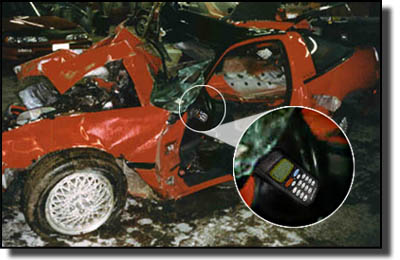Real-Life Communication
Automotive forensic investigators need very good communication abilities,
says investigator Don Peak. On every investigation, you must write a report
of your findings.
"You need technical writing skills to do this," says
Peak. Investigator Andrew Happer agrees. He says that automotive forensic
investigators may find themselves having to translate their findings, especially
in a court setting.
The following accident occurred Sunday night at
about 11 p.m. It was a rainy night. Driver Daniel Smith, 32, was driving home.
He went to turn a corner and the vehicle flipped. Smith died in hospital.
There were no eyewitnesses.
Use this photo to tell a story about what
may have happened:
 |
| Courtesy
of: Robert Sokol |
Your report contains your analysis. What do you think of this accident?
Be sure to include the date, time and road conditions of the accident. You
need to note the number of cars involved, who the drivers were (including
their age) and who the passengers were.
Set the scene -- which direction
were they traveling, for example? Make sure to say whether there were any
fatalities. Other things you might want to put in your report include witness
testimony, obvious road marks, evidence, the direction the vehicles were traveling,
any conclusions and what was relevant in your conclusion.